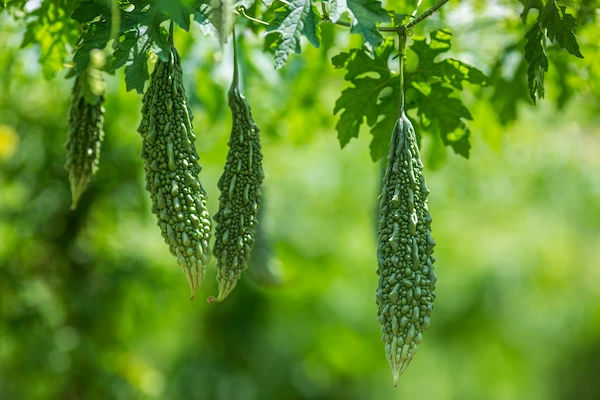Urine Color Chart and Abnormal Colors
Understand what your urine color says about your health with this Urine Colour Chart. Learn about normal vs. abnormal urine colors, possible causes, tips for healthy urine and when to consult a doctor.

Written by Dr. Vasanthasree Nair
Reviewed by Dr. Dhankecha Mayank Dineshbhai MBBS
Last updated on 13th Jan, 2026

Introduction
Have you ever noticed that your urine changes colour from time to time? While most of us don’t pay much attention to it, the colour of your urine can actually tell you a lot about your health. From hydration levels to potential health concerns, urine colour can be a helpful indicator.
In this article, we’ll explore the urine colour chart, what different colours mean, and when you should see a doctor.
What Does Normal Urine Colour Look Like?
Healthy urine typically ranges from pale yellow to deep amber, depending on how much water you drink. The colour comes from urochrome, a pigment produced when your body breaks down haemoglobin (a protein in red blood cells).
Here’s a quick guide to what different urine colours may indicate:
1. Pale Yellow to Transparent
Meaning: Well-hydrated
Why? Drinking plenty of water dilutes the urochrome, making your urine lighter.
2. Dark Yellow
Meaning: Mild dehydration
Why? When you don’t drink enough water, urine becomes more concentrated.
3. Amber or Honey-coloured
Meaning: Dehydration
Why? Severe lack of water intake; drink more fluids immediately.
4. Pink or Red
Meaning: Could be due to food (beets, berries), medications, or blood (hematuria).
When to worry: If not from food or meds, it may indicate infections, kidney stones, or bladder issues.
5. Orange
Meaning: Could be dehydration, liver/bile duct issues, or certain medications.
When to worry: If accompanied by pale stools or jaundice (yellow skin/eyes), see a doctor.
6. Blue or Green
Meaning: Rare, but could be due to food dyes, medications, or a genetic condition.
When to worry: If persistent without an obvious cause, consult a doctor.
7. Cloudy or Murky
Meaning: Possible urinary tract infection (UTI), kidney stones, or excess protein.
When to worry: If accompanied by pain, burning, or foul smell, get tested.
8. Brown or Dark Brown
Meaning: Severe dehydration, liver disease, or muscle breakdown (rhabdomyolysis).
When to worry: If not improving with hydration, seek medical help.
Consult Top Specialists for Personalised Tips
What Causes Abnormal Urine colours?
Several factors can change your urine colour, including:
1. Diet & Medications
Foods: Beets, blackberries, rhubarb, and food dyes can turn urine pink or red.
Medications: Some antibiotics, laxatives, and chemotherapy drugs can alter urine colour.
2. Dehydration
Not drinking enough water makes urine darker and more concentrated.
3. Infections & Medical Conditions
UTIs: Can cause cloudy or bloody urine.
Liver disease: May lead to dark brown or tea-coloured urine.
Kidney stones: Can cause pink or red urine due to blood.
4. Exercise & Muscle Breakdown
Intense workouts can sometimes lead to rhabdomyolysis, causing dark brown urine.
When Should You See a Doctor?
While most changes in urine colour are harmless, some may signal a serious issue. Seek medical attention if you notice:
Blood in urine (red or pink without dietary cause)
Dark brown urine (especially with pale stools or jaundice)
Cloudy urine with pain or foul smell (possible UTI)
Persistent colour changes without explanation
Tips for Healthy Urine & Better Hydration
Simple tips to maintain healthy urine and stay well-hydrated every day:
1. Drink Enough Water – Aim for 6-8 glasses daily (more if you sweat a lot).
2. Monitor Medications – Some drugs affect urine colour; ask your doctor if concerned.
3. Eat a Balanced Diet – Avoid excessive processed foods and dyes.
4. Don’t Ignore Symptoms – Pain, burning, or frequent urination need medical attention.
5. Check Your Urine Regularly – A quick glance can help catch problems early.
Final Thoughts
Your urine colour is a simple yet powerful indicator of your health. While most changes are harmless, unusual colours, especially with other symptoms, should not be ignored. Staying hydrated, eating well, and paying attention to your body can help you stay healthy.
Consult Top Specialists for Personalised Tips

Dr. Srujana Mulakalapalli
General Physician/ Internal Medicine Specialist
5 Years • MBBS, MD (GENERAL MEDICINE)
Bengaluru
Apollo Medical Center, Marathahalli, Bengaluru
(25+ Patients)

Dr Syed Mateen Pasha
General Physician
2 Years • MBBS
Bengaluru
PRESTIGE SHANTHINIKETAN - SOCIETY CLINIC, Bengaluru

Dr. Vivek D
General Physician
4 Years • MBBS
Bengaluru
PRESTIGE SHANTHINIKETAN - SOCIETY CLINIC, Bengaluru

Dr. Harshendra Jaiswal
General Physician/ Internal Medicine Specialist
12 Years • MBBS , MD (General medicine)
Kolkata
108 DHANA DHANVANTARI Clinic, Kolkata
(25+ Patients)

Dr. Syed Ismail Ali
General Practitioner
7 Years • MBBS
Hyderabad
Apollo 24|7 Clinic, Hyderabad




